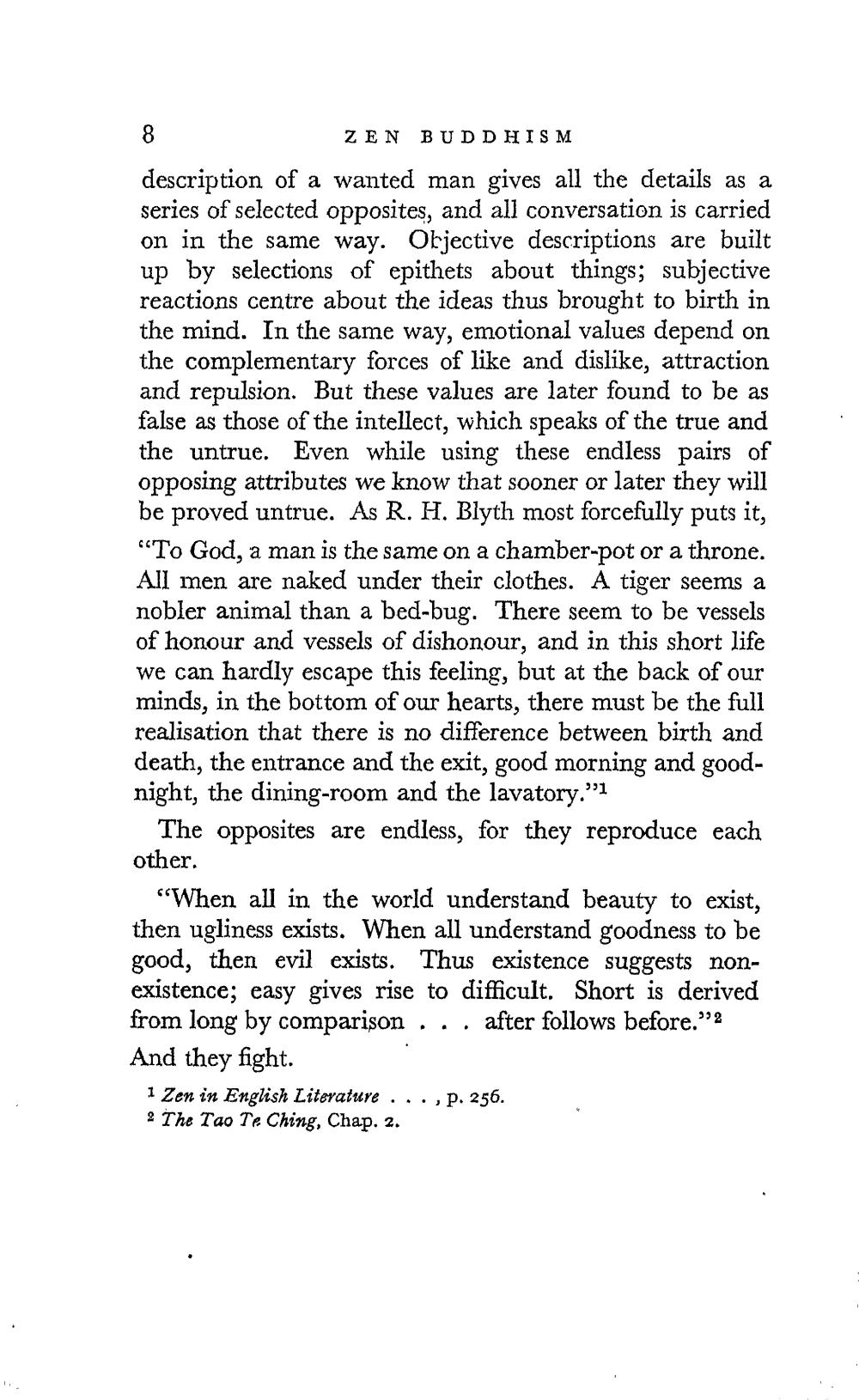________________
8
ZEN BUDDHISM
description of a wanted man gives all the details as a series of selected opposites, and all conversation is carried on in the same way. Objective descriptions are built up by selections of epithets about things; subjective reactions centre about the ideas thus brought to birth in the mind. In the same way, emotional values depend on the complementary forces of like and dislike, attraction and repulsion. But these values are later found to be as false as those of the intellect, which speaks of the true and the untrue. Even while using these endless pairs of opposing attributes we know that sooner or later they will be proved untrue. As R. H. Blyth most forcefully puts it, "To God, a man is the same on a chamber-pot or a throne. All men are naked under their clothes. A tiger seems a nobler animal than a bed-bug. There seem to be vessels of honour and vessels of dishonour, and in this short life we can hardly escape this feeling, but at the back of our minds, in the bottom of our hearts, there must be the full realisation that there is no difference between birth and death, the entrance and the exit, good morning and goodnight, the dining-room and the lavatory."1
The opposites are endless, for they reproduce each other.
"When all in the world understand beauty to exist, then ugliness exists. When all understand goodness to be good, then evil exists. Thus existence suggests nonexistence; easy gives rise to difficult. Short is derived from long by comparison after follows before."2
And they fight.
1 Zen in English Literature 2 The Tao Te Ching, Chap. 2.
• ..
P. 256.




